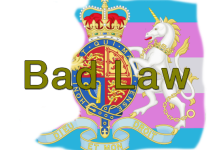By Tina Elaine Minkowitz
Abstract
This paper undertakes to address an emerging conflict between women’s human rights and gender identity rights, using tools provided by the human rights framework and by the Con-vention on the Elimination of All Forms of Discrimination Against Women (CEDAW) and its associated jurisprudence. CEDAW jurisprudence is divided, with support for gender iden-tity rights coexisting alongside a theoretical approach to equality and non-discrimination that supports the self-understanding of women as a political class that experiences both sex-based and gender-based discrimination. This paper begins with a brief overview, then moves to a discussion of the term women in the CEDAW text. It next turns to critical analysis of the Yogyakarta Principles on Sexual Orientation and Gender identity, a civil society document that is widely referenced for its articulation of a rights-based framework in this area. Finally it examines gender identity under CEDAW and posits that women’s human rights rests on a principle of female autonomy, or the existential independence of women from men in all areas of life, such that neither the class of women nor their rights can be unilaterally redefined without their assent. The paper concludes with recommendations for an approach to gender identity under CEDAW as an expressive right that should be promoted as part of the obliga-tion to eliminate sex-role stereotyping, without according rights under CEDAW to male per-sons.



